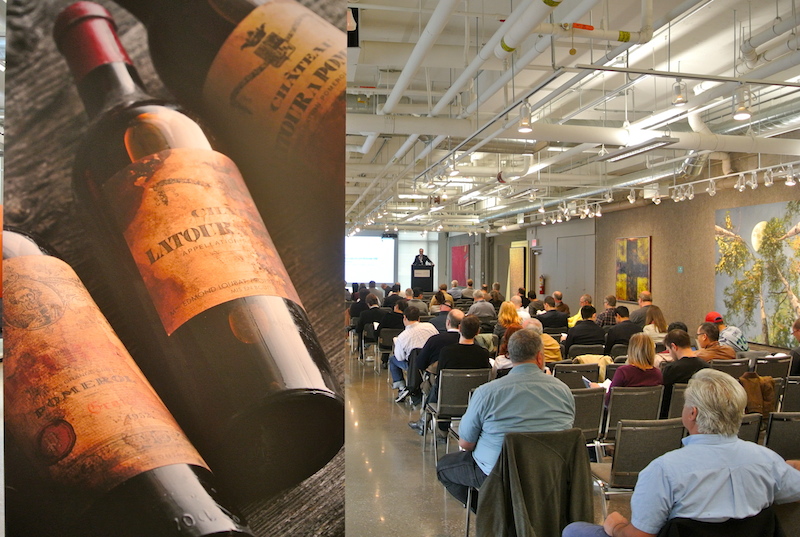
Quietly last week, Ontario’s booze monopoly finally threw in the towel over its glitzy rare and fine wine auctions and awarded the contract to an independent auction house — another case of letting private industry do a job that the LCBO couldn’t handle.
Canadian auction house Waddington’s will now conduct the auctions under a special licence through the LCBO.
The company added a new addition to their portfolio of fine art and luxury goods – Waddington’s Fine Wine and Spirits Auctions. “Ontario wine enthusiasts will now be able to better manage their cellars of fine wines and spirits with this connection to the enormous world wine market,” said Waddington’s President Duncan McLean.
The Toronto-based, Canadian-owned auction company was awarded the exclusive contract to provide fine wine and spirit auction services in Ontario under the authority of the LCBO, a first for an Ontario auction company. Waddington’s conducted the LCBO’s Vintages Fine Wine and Spirits auctions from 2009 until 2013.
The inaugural live fine wine auction will be conducted Dec. 12 at Waddington’s Toronto gallery, and an online fine wine auction will be offered Nov. 23-26. These auctions launch what will be a regular schedule of wine and spirits auctions and events for which Waddington’s is currently accepting consignments. All wines consigned are stored in a secure, temperature, light, and humidity-controlled wine vault.
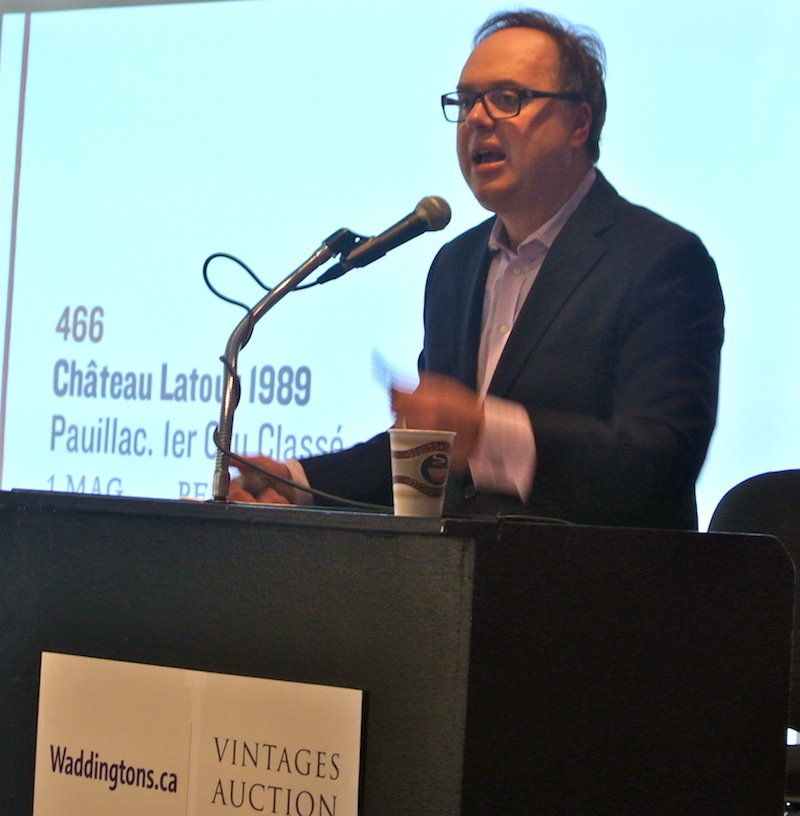
Wine auctioneer and Waddington’s vice president Stephen Ranger, above, will oversee the new division. “The popularity of collecting wine as an investment grows every year,” said Ranger. “Many wines offered at auction will appreciate in value, especially rare and acclaimed vintages, making auctions an excellent way to build a fine wine portfolio. Auctions provide an opportunity to buy wines that aren’t available through other channels and allow restaurants to build world-class wine lists.”
Past fine wine auctions conducted by Waddington’s garnered international interest from both consignors and buyers, accessible via Internet bidding through Invaluable.com. Waddington’s online auctions are conducted via the company’s secure and confidential online auction platform.
I wrote about the state of wine auctions in Ontario under the rule of the LCBO here in post earlier this year.
Warren F. Porter, president of Iron Gate Private Wine Management, has been monitoring the Vintages auction for over six years.
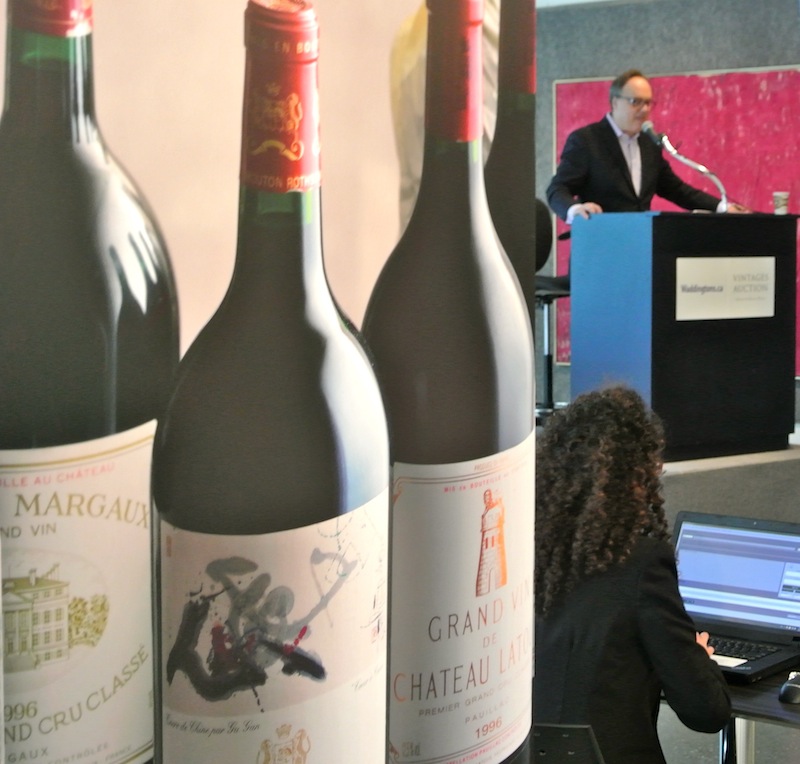
He said in a previous interview that sellers are better off taking their wines south of the border where they can fetch better prices. He suggests an auction house such as Hart Davis Hart, with sales of $20 million in four auctions for the first half of 2013, can return a higher price for sellers and the cost for getting the wine to Chicago, through an agent such as Iron Gate, is less than $10 a bottle.
“We have found it’s a much better return in the United States, we just don’t have a buyer’s market (in Canada),” Porter says.
In his most recent newsletter to Iron Gate clients, Porter broke down the new deal for Waddington’s and what it means for buyers and sellers.
He said that a detailed “Request of Proposal” went out to the private section earlier this year but was rescinded due to key elements being overlooked, and then reissued again in late April.
There were a few interesting key requirements within the RFP, according to the newsletter:
- The respondent must have “experience in conducting auctions of fine wine and spirits in Ontario.” That basically limits it to two companies; Waddington’s and Vonality, an online auction house that Iron Gate has worked with in the past for charity wine auctions.
- All consignments have to be from residents of Ontario. This is a change as past auction lots have been touted as being from, for example, “a distinguished collector in Quebec.”
- No Domaine de la Romanee-Conti may be sold. This follows on a ban that was made to the LCBO at the insistence of DRC a couple years ago. For buyers this is unfortunate but not so much for sellers as DRC has never commanded it’s true market value at the Vintages auction historically.
- No agents or manufacturers are allowed to sell product through the auction
- The LCBO will take a commission on all sales over and above taxes charged … which is pretty good considering they’re not going to be doing anything.
“So what is the difference, one might ask, considering that Waddington’s was always the company conducting the auction for the LCBO in the past?,” said Porter.
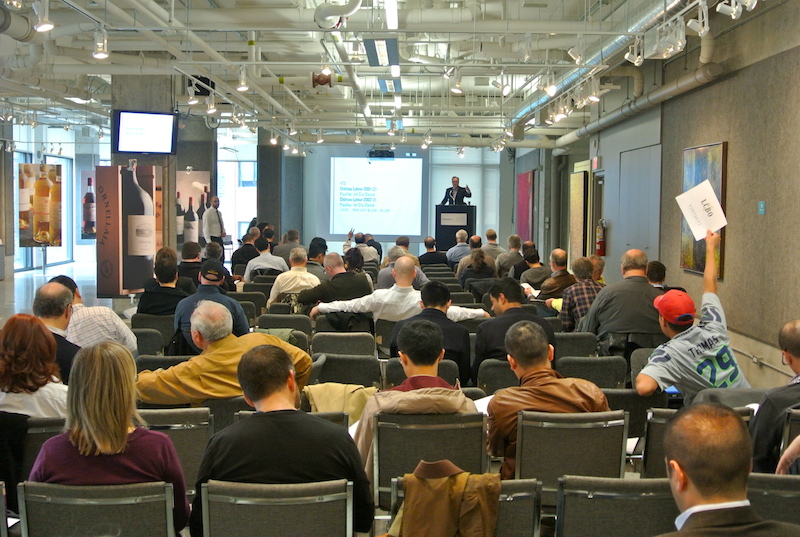
“Firstly this is no longer the ‘Vintages Auction’ but rather the ‘Waddington’s Wine Auction’ under special license by the LCBO. This should give Waddington’s far greater control to host and manage the sale(s). Waddington’s will also be completely responsible for consignor relations and acquisition, inventory control, delivery/pick-up, appraisals, etc.
“The second thing is that Waddington’s will be moving away from the multi-day live/online, single weekend events of the past. Released from the bureaucratic shackles of the LCBO they can migrate into a greater degree of online selling spread over the course of the year. This is clearly the direction that most of the wine auctions around the world have migrated to since the general public has become more accustomed to buying online.”
Porter says this is good news for the Ontario buyer (licensees in particular) as there has not been a place to purchase back vintage, rare wine in Ontario now for almost two years.
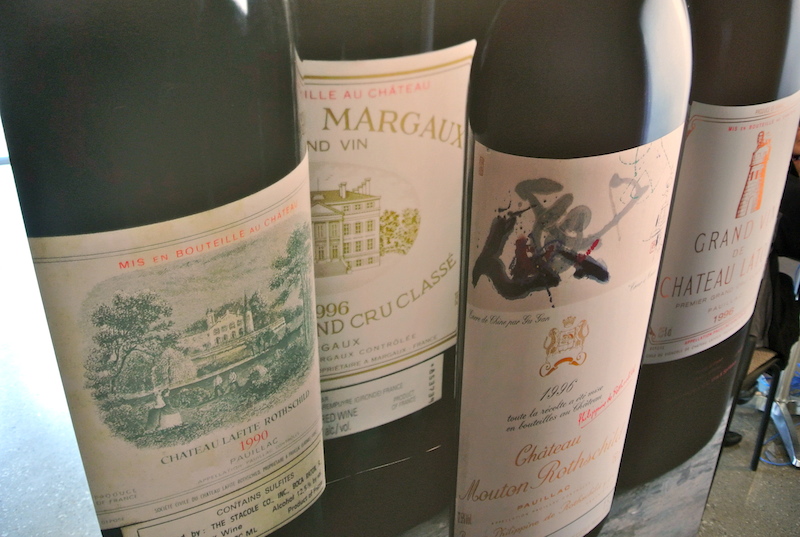
But for the Ontario seller, he says, only time will tell whether consigning to Waddington’s will net a greater return than consigning to a U.S. auction house or doing a straight out sale to a U.S. online retailer, many of whom are clamouring for Canadian collections with great provenance.
In addition, he adds, “the U.S. dollar adding 32% to a sale price makes it difficult to expect that a small Ontario auction, dormant for two years, could provide a higher return with less risk than consigning or selling south of the border.”
In the end, says Porter, “Waddington’s challenge will be convincing consignors that selling in this auction, small by world standards, in Canadian funds, will net them a higher return than a U.S. auction or an outright U.S. retailer buy — both perfectly legal. If people know the options I would suggest that they’ll hedge their bets south of the border, but we’ll see, maybe they can garner an incredible premium by being one of the only places to buy back vintage wine in Canada. 30% exchange plus 20% buyer premium plus 13% HST is a big hill to climb however.”
For Ontario lovers of rare and vintage fine wines, at least the auction front is unfrozen once again and there is a place to purchase (and sell) these wines other than the risky “grey” market. Only time will tell if the hammer price is worth the chase.





Comment here